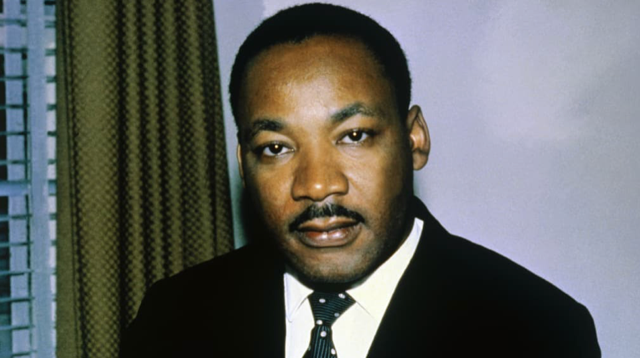MLK - The Revolutionary
Bettmann Archive/Getty Images
As we use the word revolution often in the work we do here at OTO; we want to acknowledge the revolutionary work of Dr. King. Often we usually credit Malcolm X with being an extremist or a revolutionary. But, today, on MLK day, we would like to talk about Dr. King, not just about the surface level value given to him, but also about how we view revolution. A revolution is defined as a forcible overthrow of a government or social order in favor of a new system. What discussions often happen around the idea of revolution is what a revolution should or should not look like. We even ask what methods of revolution are effective or transformative-right or wrong, etc. When considering Dr. King, he has been credited oftentimes with doing it the “right way,” which is interesting. It is as if we had put a pacifier on the thought-provoking questions he’s asked and how transformational those same questions and actions continue to be. Those same questions today, which are relevant, still bring judgment to those in denial about who they are. In Dr. King’s work, “Where Do We Go From Here: Chaos or Community,” He states, “Why is equality so assiduously avoided? Why does white America delude itself, and how does it rationalize the evil it retains? (King, 1967) ” He asked questions of whiteness that many did not have the audacity to ask while creating and maintaining an inclusive revolution. You hear conversations such as, “Who are you, Malcolm or Martin?” And usually, the answer sounds something like “I couldn’t be like Martin.” As if there is weakness in his nonviolent approach. He was a man whose words alone incited violence in others because he was a true tactician at revealing his opposition. He tactfully asked questions that forced many to ask themselves the hard questions, which showed the barbarism in who they were. His analysis was not just rooted in the survival of the Black American. It was rooted in what kind of human are you? Dr. King asked revealing questions that broke down what white morality and values were rooted in. His work still actively destroys their foundation.
When we discuss Dr. King and his revolutionary work, what we want you to consider is the respect he deserves as a revolutionary tactician. So today and every Martin Luther King Day hereafter, we want you to think, what do you know about who he is and the work he has done? Have you read or studied beyond A Letter from Birmingham Jail and have researched beyond what you have been told about his ideologies?
With these questions, we want you to consider:
Are you another person telling someone what a revolution should look like? We often gatekeep “blackness” and revolutionary work, minimizing what it all can be.
Next, when considering Malcolm versus Martin, is that limiting the scope of what revolution can be and how one can participate in it?
Below you will find a post by an influencer named Michael Jones of The Free Roots Project. He is an influencer by accident, but his work has always been rooted in excavating how we think about societal constructs and structures from a Black perspective. With his permission, we are sharing the caption that inspired this post:
“The way white folks do him is one thing. But y’all sit up here and act like he wasn’t radical, act like he wasn’t groundbreaking, act like he didn’t put it all on the line because you have a limited intellectual scope on what it means to be revolutionary. My Mans taught nonviolence because it was the only methodology that can utilize all people. Folks who could not physically fight could still disrupt. It’s also hella wild that you can credit Malcolm for transformative growth, but never King. But, I’ll tell you why that is: because high key you have not read either of them. Your entire stance is based on Denzel Washington and Spike Lee. You don’t know Malcolm anymore than you know Martin for real, for real. And listening to people, hostility talk about Martin let me know the lack of literature they have actually gotten into. His power was in analytics and in how he viewed organization. And that’s why white folks do him like they do. They castrate his legacy. But we let them.”
Once reading this, it was known that one thing had to be said today of all days: PUT SOME RESPECK on Dr. King’s name. The revolution still will not be televised, but it will be actualized, through those who came before us. The work we do here at this organization has always been moment by moment, and we would not be able to do the things we do without the revolutionary work of Dr. King. The revolution is and always has been for everyone, and there is nothing passive about that.
“We who engage in nonviolent direct action are not in the creators of tension. We merely bring to the surface the intention that is already alive…we bring it out in the open, so it can be seen and dealt with.” - Martin Luther King Jr.

